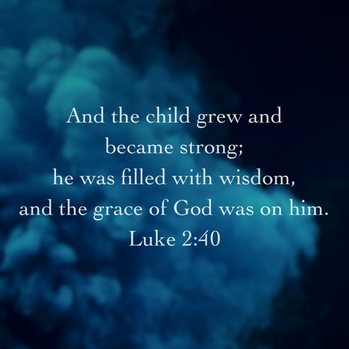|
Good morning!
When we meet in person, we normally share our joys and concerns with each other. Reflect on your week, and think about your personal joys and concerns. Consider for who or what you might want to pray. You may want to look at the prayer list in the most current worship service, and pray for those people as well.
I get Daily Meditation emails from Father Richard Rohr, whose writing I was introduced to when I lived in Flagstaff. This week's guided prayer comes from those emails.
O Great Love, thank you for living and loving in us and through us. May all that we do flow from our deep connection with you and all beings. Help us become a community that vulnerably shares each other’s burdens and the weight of glory. Listen to our hearts’ longings for the healing of our world.
[Please add your own intentions and prayers here.] Knowing you are hearing us better than we are speaking, we offer these prayers in all the holy names of God, Amen.
This week's scripture lesson is Ecclesiastes 3:1, 7 and Luke 2:39-52.
Introduction: Raising a Child Star Ever since Shirley Temple (1928-2014) appeared in movies as a child, preteen actors have been a feature of popular entertainment. Children with exceptional talent consistently attract large audiences eager to be amazed at youngsters who can outperform adults. Imagine being the adult who nurtures and guards such a child. It might seem that all the usual principles of parenting have to be ignored so that the child's full potential can be realized. Friends? School? Play? Discipline? There is no time for such matters when practice and performances beckon. How can caring parents ensure that the child's life is as "normal" as possible in the pressures of the limelight? The sad stories of many child stars suggest that their path to adulthood is not easy. Today's text narrates a never-to-be-repeated first-century version of this dilemma. Lesson Context: Ecclesiastes As one of the Old Testament books known as wisdom literature, Ecclesiastes explores the accumulated wisdom of its time and place. In so doing, it asks whether life has meaning. Its writer, "the Teacher" (Ecclesiastes 1:1), has long been identified as King Solomon. He alternates between principles of wise living and his own discouraged impression that "all of it is meaningless" (Ecclesiastes 2:17). But in the end he concludes that the purpose of human life is to remember the Creator before our lives slip away from us (Ecclesiastes 12:1). Therefore one must read the entirety of the book to glean the ultimate truth of it. Lesson Context: Luke Of the four Gospels, only Matthew and Luke give stories of Jesus' birth, and only Luke includes a story from Jesus' childhood. It comes just after the accounts of the announcement and birth of both John the Baptist and Jesus. Luke portrays both births as vital parts of God's plan, closely linked to one another as the two men's ministries later would be linked. Even so, Jesus' uniqueness is evident from the beginning (Luke 1:32, 35; 2:11). As his story unfolds, we see that Jesus is greater than all others because he has the nature and authority of God himself (Matthew 28:18; Philippians 2:6). In Jesus, God entered the world to rescue his people (John 1:1, 9-14). How we understand something so unusual, something that is fundamentally different from every other thing, is answered in today's text. Lesson In person, we would usually discuss the scripture lesson, and how we connect it to our lives. Take some time to do this while we meet separately. Consider your answers to the following questions from our teacher's book. There are not always right answers, and the questions can be hard! You may share your thoughts and answers in the comment section at the bottom of the lesson.
Article: Book Smart
I learned to read at a young age. I remember riding the train at age 7 with my mother as I read an Agatha Christie mystery. A stranger asked my mother if I was actually reading the book, and I heard my mother tell her yes. The stranger pressed, "Does she understand it thought?" My mother shrugged and shook her head no. At the time I was offended -- of course I understood it! Looking back, there was much about that novel and others that I didn't understand. The books contained words that I could pronounce but not define. These concealed adult themes I was too young to catch. I just filled in the blanks. Jesus demonstrated great insight when he was just 12 years old. Though other boys were committing incomprehensible words to memory, Jesus already understood the law and could discuss it intelligently. He didn't have to fill in any blanks. At what stage are you in your Bible study? Do you understand what you're reading, or are you still just filling in blanks? Conclusion How do we comprehend something that is fundamentally different from every other thing with which we have experience? Ecclesiastes speaks of the regularity of life's cycles, showing the wisdom of understanding circumstances. Luke shows Jesus' uniqueness in how Jesus defied the conventional wisdom of those cycles as he spoke in the temple at age 12. But Jesus' words come to us as the first divine revelation from his lips at the time the uniqueness of his identity began to build. As people called into fellowship with Jesus, Christians are to follow God's purpose in mundane, daily ways -- ways that can give way suddenly to our saying and doing the unexpected. For us to expect to do only and always the unusual is not God's way. Even so, God's will can run counter to conventional expectations on many occasions. Expect the world to scold us for defying its expectations as we continue to follow in the surprising direction of Jesus' footsteps. Prayer Father, challenge us to grow in your wisdom as Jesus grew. In his name we pray. Amen. Benediction This week's benediction is from the Amplified Bible.
0 Comments
Leave a Reply. |
AuthorWe are a small, rural Presbyterian church in southwestern Pennsylvania. Archives
July 2024
Categories
All
|



 RSS Feed
RSS Feed